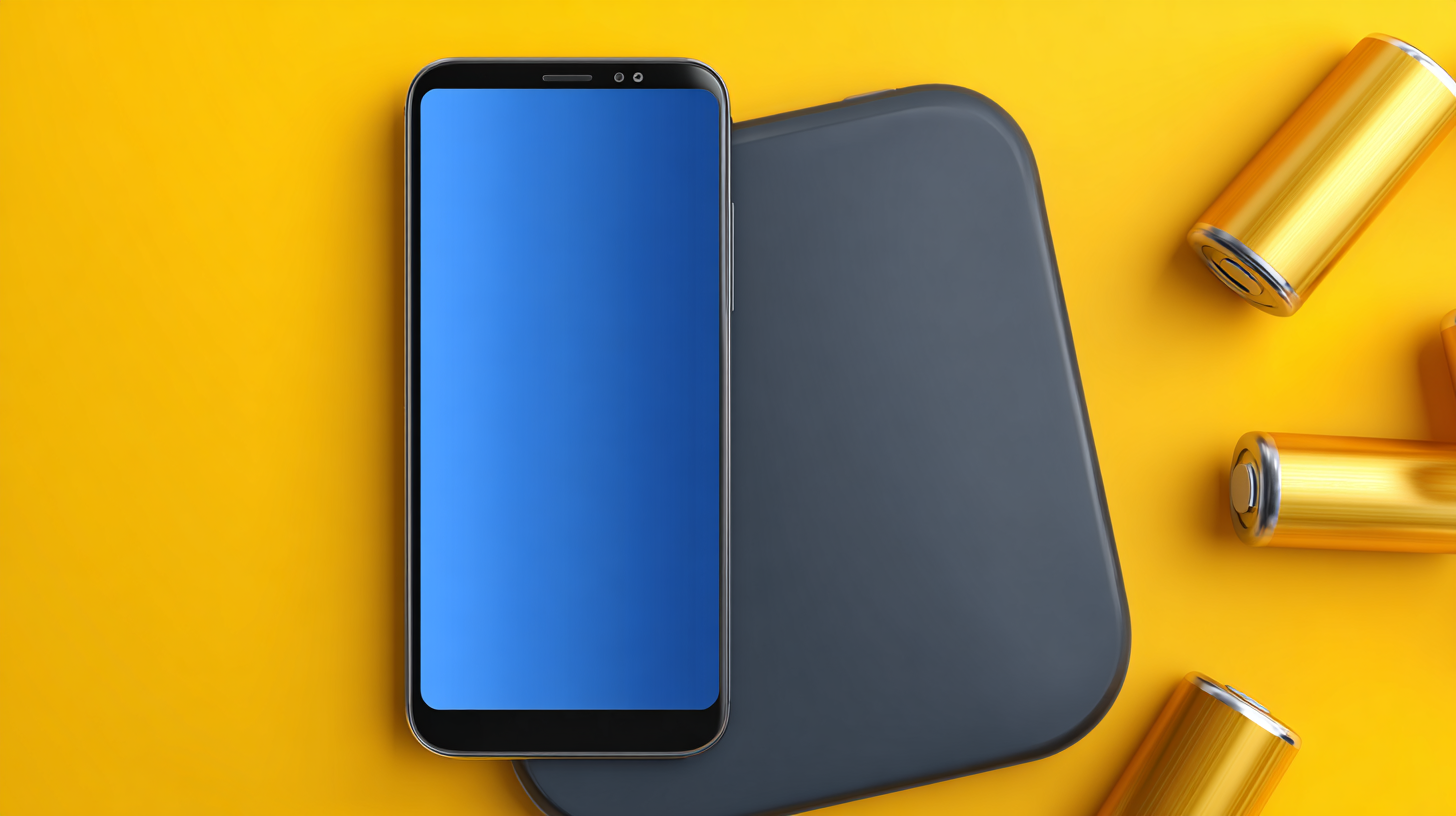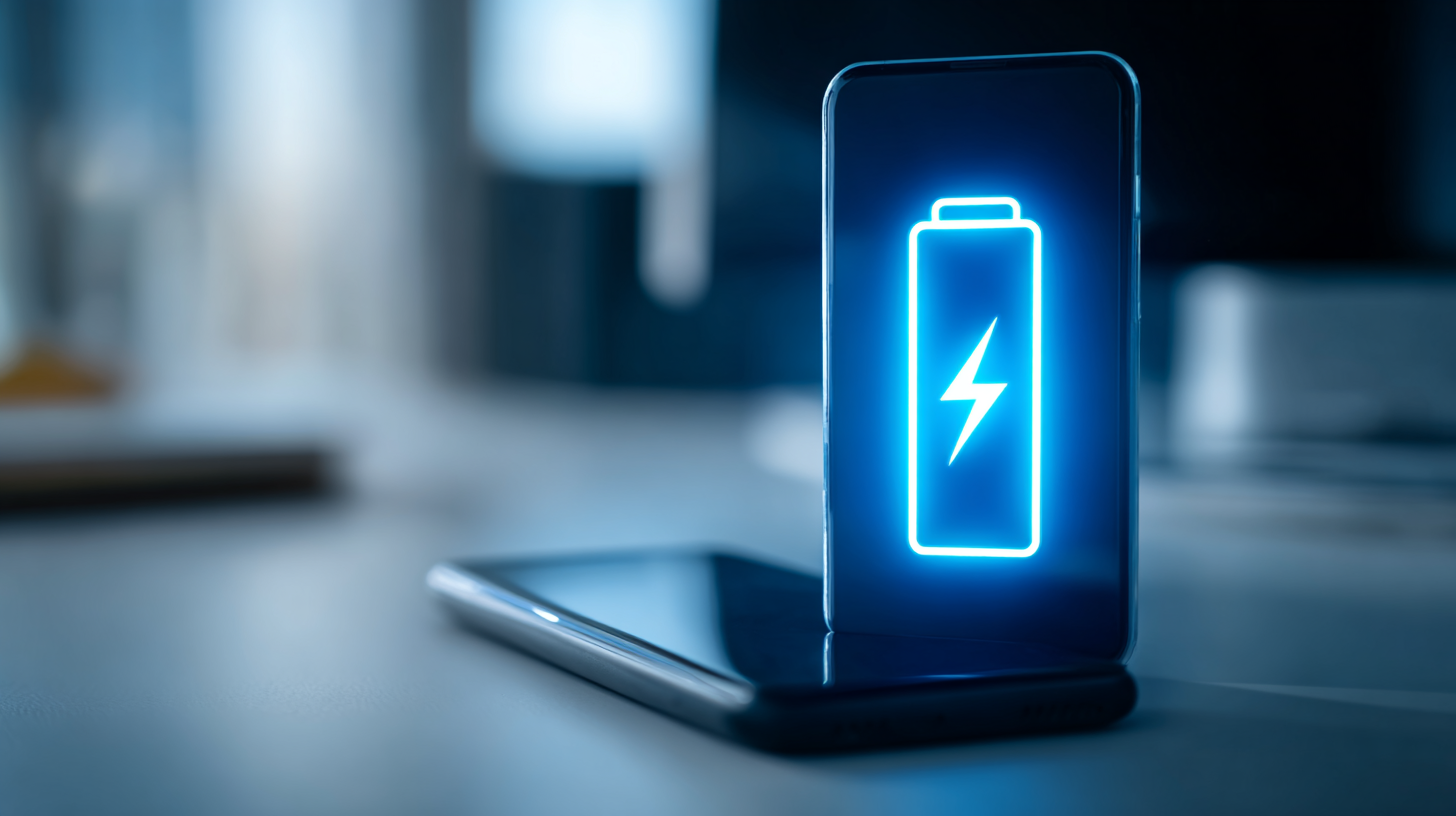How to Extend the Lifespan of Your Mobile Battery with Proven Techniques and Tips
The mobile battery has become an essential component of our daily lives, powering devices that connect us to the world. According to a report by Statista, approximately 97% of the global population owned a mobile phone as of 2021, underscoring the importance of maintaining these crucial power sources. However, the average lifespan of a mobile battery continues to be a concern, as research indicates that most lithium-ion batteries, commonly used in smartphones, start to degrade significantly after only 300 to 500 charge cycles. This degradation can lead to diminished performance, shorter usage times, and can ultimately necessitate expensive replacements.

Fortunately, there are proven techniques and tips that can help users extend the lifespan of their mobile batteries, ensuring that their devices remain reliable and efficient for longer. In this blog, we will explore these methods to empower users to get the most out of their mobile batteries.
Understanding Mobile Battery Lifespan: Key Factors to Consider
Understanding the lifespan of your mobile battery is crucial in maximizing its performance and longevity. Industry experts suggest that the average lifespan of a lithium-ion battery, commonly used in smartphones, is around 2 to 3 years, or approximately 500 full charge cycles. Factors influencing battery health include temperature, charging habits, and usage patterns. Studies indicate that exposing your device to extreme temperatures, particularly above 35°C (95°F), can accelerate degradation, leading to a significant reduction in charge capacity over time.
To extend your battery's lifespan, consider implementing some simple yet effective tips. First, avoid letting your battery drop below 20% before recharging. Frequent deep discharges can strain the battery and shorten its lifespan. Secondly, using the "Battery Saver" mode during low usage periods can reduce energy consumption and help maintain battery health. Lastly, limit background app activity and optimize settings such as screen brightness and location services, which can drain your battery quickly. By adopting these practices, you can ensure that your mobile battery remains in good condition for a longer duration.
Best Practices for Charging Your Mobile Device: Dos and Don'ts
Charging your mobile device properly is essential to extending the lifespan of its battery. One of the best practices is to avoid letting your battery drain completely. Lithium-ion batteries, which power most smartphones today, have a limited number of charge cycles. By keeping your battery level between 20% and 80%, you can reduce wear and maximize its longevity. This means charging your device before it drops too low and unplugging it once it reaches full capacity.
Additionally, using the right charger and cable is crucial. While it may be tempting to use any available charger, opting for the original or certified accessories will ensure that your device charges efficiently and safely. Avoid fast charging too often, as this can generate heat and degrade battery health over time. Finally, remember to be cautious with your device's environment; extreme temperatures can negatively impact battery performance. By following these dos and don’ts, you can effectively promote a longer lifespan for your mobile battery, keeping your device running smoothly for years to come.
Environmental Impacts on Battery Life: How Temperature Matters
The lifespan of your mobile battery can be significantly affected by environmental factors, with temperature being one of the most critical. Extreme temperatures, both hot and cold, can lead to diminished battery performance and accelerated degradation. Lithium-ion batteries, commonly used in smartphones, thrive in moderate temperature ranges; exposure to heat can cause the battery to internally corrode, while cold conditions may impede its ability to hold a charge. This highlights the importance of keeping your device within a temperature-friendly environment to maximize its longevity.
Additionally, seasonal changes can play a significant role in battery health. In summer, leaving your phone in a hot car or direct sunlight can lead to thermal stress, while in winter, carrying it in a cold pocket can result in reduced efficiency. Simple practices, such as avoiding direct sunlight and keeping your device insulated during cold weather, can contribute greatly to maintaining your battery's health. By being mindful of temperature extremes and making necessary adjustments, users can greatly extend the lifespan of their mobile batteries.

Techniques to Optimize App Performance and Battery Usage
To optimize app performance and battery usage effectively, it is essential to understand the intricacies of battery technology and its advancements. According to recent industry reports, the lithium battery market is evolving rapidly, with significant research focused on enhancing the electrochemical properties of liquid and solid-state electrolytes. This research aims to improve ion conductivity, which directly impacts charging times and overall battery longevity. For instance, studies have indicated that advancements in lithium battery technologies could potentially double the lifespan of consumer mobile devices by 2032.

Moreover, the integration of AI in battery management systems is set to revolutionize how we monitor and optimize battery usage. Companies are increasingly employing machine learning tools that can predict battery performance degradation, thereby enabling proactive measures to extend battery life. By using these predictive models, users can optimize app usage according to battery levels—an intelligent approach to minimize unnecessary drain during critical times. The synergy between AI and battery technologies not only promises enhanced user experience but also drives sustainability in mobile device usage by significantly reducing waste through longer-lasting battery solutions.
When to Replace Your Battery: Signs You Shouldn't Ignore
As mobile devices become integral to our daily lives, understanding when to replace your mobile battery is crucial for maintaining performance. Several signs indicate that your battery may be on its last legs. One of the most noticeable is a rapid decrease in battery life. If you find yourself constantly charging your phone, only to see the percentage plummet within hours of use, it’s a red flag that the battery’s capacity is diminishing.
Another sign to watch for is overheating. If your device becomes excessively warm during regular use or charging, it may indicate that the battery is failing. Additionally, if your phone shuts down unexpectedly, even when the battery shows a reasonable charge, it's time to consider a replacement. These symptoms not only affect your experience but can also lead to further complications if left unaddressed, making it essential to recognize them early and take appropriate action.
Related Posts
-

The Ultimate Guide to Maximizing Efficiency with Energy Storage Batteries: Key Trends and Innovations
-

How Best Forklift Battery Optimizes Warehouse Efficiency with Real World Applications
-

5 Practical Tips for Maximizing Energy Storage Battery Efficiency
-

How to Ensure Import Export Certification for the Best Vacuum Circuit Breaker
-

Exploring Innovative Alternatives to Miniature Circuit Breaker Solutions in Modern Electrical Systems
-

Unlocking the Power of Best Power Storage Battery Specifications and How to Choose the Right One for Your Needs
